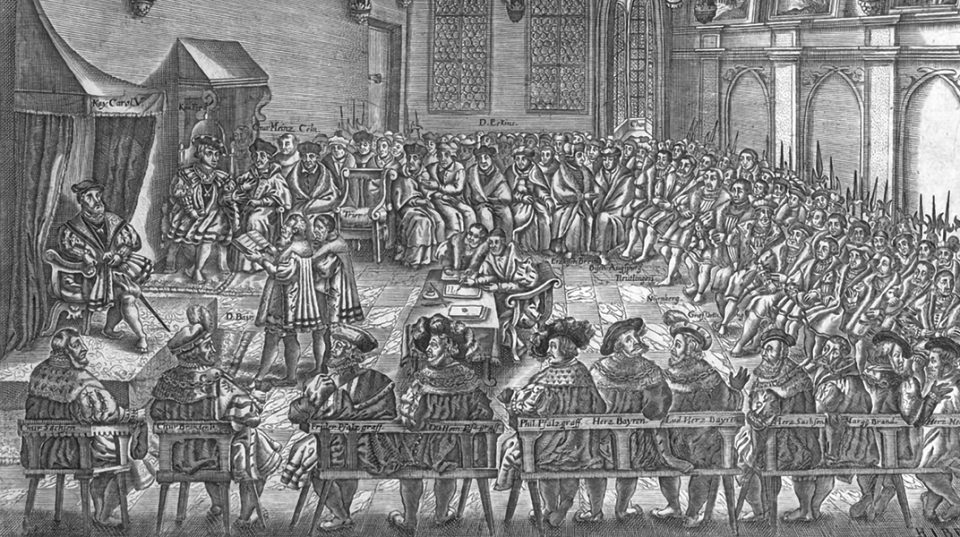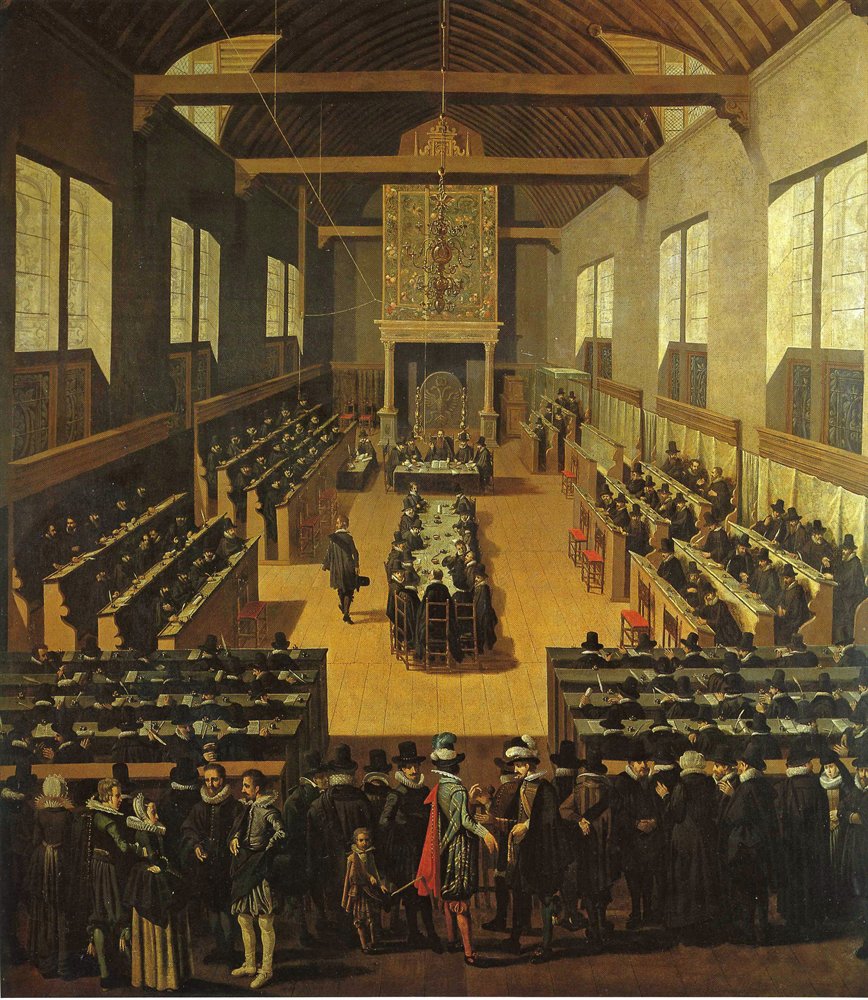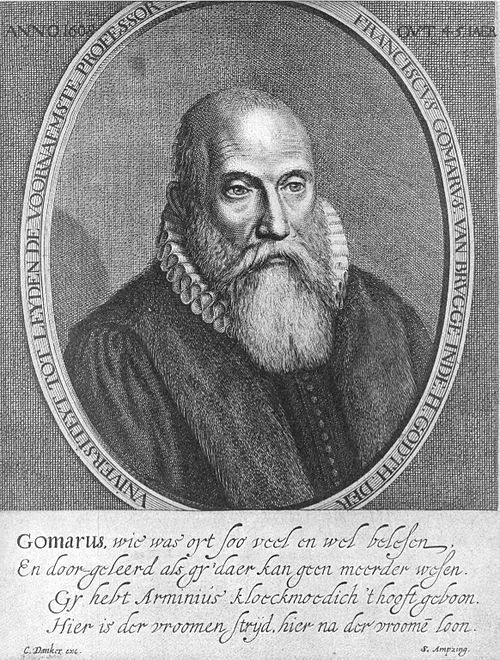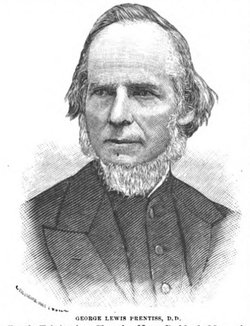Hello and welcome. In this article, we'll look at how various Reformed traditions historically understood the doctrine of original sin according to confessions and statements. We've already written about this topic from our perspective of ancestral sin. To better understand our perspective, read our article making a biblical case for ancestral sin here. We've also covered the early Anabaptist perspective in our article here.
THE PURPOSE, RELEVANCE, AND SUMMARY OF THE STATEMENTS TO BE SHOWN
REFORMED TRADITIONS ON INFANT DAMNATION
The Augsburg Confession, 1530 AD
“Also they teach that since the fall of Adam all men begotten in the natural way are born with sin, that is, without the fear of God, without trust in God, and with concupiscence; and that this disease, or vice of origin, is truly sin, even now condemning and bringing eternal death upon those not born again through Baptism and the Holy Ghost.” - Augsburg Confession, Article 2
John Calvin, 1509 AD - 1564 AD
"The two things, therefore, must be distinctly observed—viz. that we are vitiated and perverted in all parts of our nature, and then, on account of this corruption, are justly held to be condemned and convicted before God, to whom nothing is acceptable but purity, innocence, and righteousness. And hence, even infants bring their condemnation with them from their mother’s womb; for although they have not yet brought forth the fruits of their unrighteousness, they have its seed included in them. Nay, their whole nature is, as it were, a seed of sin, and, therefore, cannot but be odious and abominable to God. Believers become assured by baptism, that this condemnation is entirely withdrawn from them, since (as has been said) the Lord by this sign promises that a full and entire remission has been made, both of the guilt which was imputed to us, and the penalty incurred by the guilt." - Institutes of the Christian Religion, 4.15.10
"Scripture proclaims that all were, in the person of one, made liable to eternal death. As this cannot be ascribed to nature, it is plain that it is owing to the wonderful counsel of God. It is very absurd in these worthy defenders of the justice of God to strain at a gnat and swallow a camel. I again ask how it is that the fall of Adam involves so many nations with their infant children in eternal death without remedy unless that it so seemed meet to God? Here the most loquacious tongues must be dumb. The decree, I admit, is, dreadful; and yet it is impossible to deny that God foreknow what the end of man was to be before he made him, and foreknew, because he had so ordained by his decree." - Institutes of the Christian Religion, 3.23.7
"As far as relates to young children, they seem to perish not by their own, but for another’s fault; but the solution is twofold; for although sin does not appear in them, yet it is latent, since they carry about with them corruption shut up in their soul, so that they are worthy of condemnation before God. This does not come under the notice of our senses; but we should consider how much more acutely God sees a thing than we do: hence, if we do not penetrate into that hidden judgment, yet we must hold that, before we are born, we are infected by the contagion of original sin, and therefore justly destined to ultimate destruction: —this is one solution." - Commentary on Ezekiel 18:4
“We ought, therefore, to hold it as a settled point, that all who are destitute of the grace of God are involved in the sentence of eternal death. Hence it follows, that the children of the reprobate, whom the curse of God pursues, are liable to the same sentence.” - Commentary on Isaiah 14:21
“We believe that, through the disobedience of Adam, original sin is extended to all mankind; which is a corruption of the whole nature, and an hereditary disease, wherewith infants themselves are infected even in their mother's womb, and which produceth in man all sorts of sin, being in him as a root thereof; and therefore is so vile and abominable in the sight of God, that it is sufficient to condemn all mankind.” - Article 15
“But, in his De fide ad Petrum and in a few other places, Augustine asserts that unregenerate children, if they die, will experience eternal fires. The sacred Scriptures seem to favor this opinion…” - On Original Sin, p. 63“Therefore, we will say with Augustine and the Scriptures that the unregenerate must be punished; but concerning the kind of punishment and the mode of it, we cannot give details, except that, since there will be various punishments in Hell (for the Scriptures themselves assert that some will abide more tolerably than others), it is believable that, since they [infants] did not add actual sins to their original sin, they will be punished more lightly. Yet, I always except the children of the saints, because we do not hesitate to count them among believers, although they do not in reality believe yet because of their age.” - On Original Sin, p. 64
The Formula of Concord, 1577 AD
“The punishment and penalty of original sin, which God has imposed upon the children of Adam and upon original sin, are death, eternal damnation, and also other bodily and spiritual, temporal and eternal miseries, and the tyranny and dominion of the devil, so that human nature is subject to the kingdom of the devil and has been surrendered to the power of the devil, and is held captive under his sway, who stupefies [fascinates] and leads astray many a great, learned man in the world by means of dreadful error, heresy, and other blindness, and otherwise rushes men into all sorts of crime.” - Chapter 1, Paragraph 4
“The whole of this sin, however, is not peculiar to our first parents, but is common to the entire race and to all their posterity, who, at the time when this sin was committed, were in their loins, and who have since descended from them by the natural mode of propagation, according to the primitive benediction. For in Adam ‘all have sinned.’ (Romans 5:12). Wherefore, whatever punishment was brought down upon our first parents, has likewise pervaded and yet pursues all their posterity: So that all men ‘are by nature the children of wrath’, obnoxious to condemnation and to temporal as well as to eternal death; they are also devoid of that original righteousness and holiness. With these evils they would remain oppressed forever, unless they were liberated by Christ Jesus; to whom be glory for ever.” - Public Disputations, Disputation VII, Section XVI
"If the brethren dissent from this opinion, and think that the consequences which they themselves deduce are agreeable to the premises, then all the children of unbelievers must be subject to condemnation, the children of unbelievers, I repeat, who are strangers from the covenant. For this conclusion no other reason can be rendered, than their being the children of those who are “strangers from the covenant.” From which it seems, on the contrary, to be inferred, that all the children of those who are in the covenant are saved, provided they die in the age of infancy. But since our brethren deny this inference, behold the kind of dogma which is believed by them. “All the infants of those who are strangers from the covenant are damned ; and of the offspring of those parents who are in the covenant, some infants that die are damned, while others are saved." I leave it to those who are deeply versed in these matters, to decide, whether such a dogma as this ever obtained in any church of Christ.” - Apology Against 31 Articles, Articles XIII & XIV
"As all men have sinned in Adam, lie under the curse, and are deserving of eternal death, God would have done no injustice by leaving them all to perish, and delivering them over to condemnation on account of sin, according to the words of the apostle, Romans 3:19,"that every mouth may be stopped, and all the world may become guilty before God." And verse 23:"for all have sinned, and come short of the glory of God." And Romans 6:23:"for the wages of sin is death." - The Canons of Dort, First Main Points of Doctrine, Article 1
“Therefore, all people are conceived in sin and are born children of wrath, unfit for any saving good, inclined to evil, dead in their sins, and slaves to sin. Without the grace of the regenerating Holy Spirit they are neither willing nor able to return to God, to reform their distorted nature, or even to dispose themselves to such reform.” - The Canons of Dort, The Third and Fourth Main Points of Doctrine, Article 3
“On account of original sin alone, there is also damnation, which is the wages of every sin, even of sin which is not actual. Therefore, also the infants unregenerate, the infants of unbelievers, who are aliens from the covenant of God, are by nature children of wrath, without Christ, without hope, without God, as also the infants of the world of the ungodly in the flood, and the infants of the impious Sodomites in the burning, perished, and were justly subjected to the wrath of God with their parents.” - Gomarus, cited by Krauth, Infant Baptism and Infant Salvation in the Calvinistic System p. 57
“Many infants depart from this life in original sin, and consequently are condemned to eternal death on account of original sin alone; therefore from the sole transgression of Adam condemnation to eternal death has followed upon many infants.” - Twisse, cited by Van Dyke, God and Little Children, p. 22-23
“Every sin, both original and actual, being a transgression of the righteous law of God, and contrary thereunto, doth, in its own nature, bring guilt upon the sinner, whereby he is bound over to the wrath of God and curse of the law, and so made subject to death, with all miseries spiritual, temporal, and eternal.” - Chapter 6, Paragraph 6
"All mankind by their fall lost communion with God, are under his wrath and curse, and so made liable to all the miseries of this life, to death itself, and to the pains of hell forever." - Question 19
“Confessedly, therefore, original sin is a most just cause of positive reprobation. Hence no one fails to see what we should think concerning the children of pagans dying in their childhood…we should humbly believe that they are justly reprobated by God on account of the corruption and guilt derived to them by natural propagation.” - Opera, iii., cols. 1173-74, § 22
“Is there, in man, a sin properly so called, which is termed original sin, subjecting man to eternal death and condemnation? Or is it rather a sin improperly so called, merely an infirmity, or a weakness and disease of nature, not truly subjecting man either to punishment or to the wrath of God?…On the contrary, we affirm (whatever irrational reason may object) that all mortals (except Christ alone) sinned in Adam and are, therefore, born in sin and subject to both temporal and eternal death from the womb.” - An Examination of Arminianism, Chapter 6
“Then to the Bar all they drew near Who died in infancy; And never had or good or bad effected pers’nally; But from the womb unto the tomb were straightaway carried , (Or at the least ere they transgress’d) who thus began to plead: “If for our own transgression or disobedience, We here did stand at thy left hand, just were there Recompense; But Adam’s Guilt our souls hath spilt, his fault is charg’d upon us; And that alone hath overthrown and utterly undone us.”” - The Day of Doom, p. 68-69
“Then answered the Judge most dread: “God doth such doom forbid, That men should die eternally for what they never did. But what you call old Adam’s Fall, and only his Trespass, You call amiss to call it his, both his and yours it was.” - The Day of Doom, p. 70
“A crime it is, therefore in bliss you may not hope to dwell; But unto you I shall allow the easiest room in Hell.” - The Day of Doom, p. 72
“Let us consider the punishment due to original sin, as such, namely, in those who are charged with no other guilt than that of Adam's first sin. This more especially respects those who die in their infancy, before they are capable of making any addition to it. Concerning these, I cannot but conclude with Augustin, in his defence of original sin against the Pelagians, that the punishment is the most mild of any, and cannot be reckoned so great that it may be said of them, 'It had been better for them not to have been born.’” - A Body of Divinity, The Punishment Consequent of Original Sin, p. 1015
"Upon the whole therefore, the State of Non-existence, to which we here suppose them to be reduced after Death, is much more probable, being the least Demerit of imputed Sin, or an everlasting Forfeiture of Life, and a sort of endless Punishment without Pain" - The Ruin and Recovery of Mankind, p. 299
"Mere imputed Sin, without actual Transgression, is the least and lowest sort of Guilt that can be; and therefore it is highly probable, a righteous and merciful God will inflict on them the least and lowest sort of Punishment threatened to Sin, i. e. Death in the mildest sense of it, or an universal and eternal Destruction of Soul and Body, which are forfeited by Sin" - The Ruin and Recovery of Mankind, p. 300
“Upon the whole, the Opinion of the Salvation of all Children, as it has no countenance from the Bible, so it has no foundation in the Reason of Things...The Scripture brings down the infants of wicked parents to the grave, and leaves them there, and so do I. The Scripture has not provided any resurrection for them, neither can I do it” - The Ruin and Recovery of Mandkind, p. 314
“We may well argue from these things, that infants are not looked upon by God as sinless, but that they are by nature children of wrath, seeing this terrible evil comes so heavily on mankind in infancy. But besides these things, which are observable concerning the mortality of infants in general, there are some particular cases of the death of infants, which the Scripture sets before us, that are attended with circumstances, in a peculiar manner, giving evidences of the sinfulness of such, and their just exposedness to divine wrath.” - The Great Doctrine of Original Sin Defended, p. 147“To think of poor little infants bearing such torments for Adam's sin, as they sometimes do in this world, and these torments ending in death and annihilation, may sit easier on the imagination, than to conceive of their suffering eternal misery for it. But it does not at all relieve one's reason.” - The Great Doctrine of Original Sin Defended, p. 364
“It appears from what has been said concerning native depravity, that if children die before they become moral agents, it is most rational to conclude that they are annihilated…Of course, we must conclude that they will be annihilated. This was the opinion of Dr. Watts, and it seems to be well founded.” - System of Divinity, Volume I, p. 510-511
“Some Calvinists have, indeed, to get rid of the difficulty [eternal punishment of infants], or rather to put it out of sight, consigned them to annihilation.” - Theological Institutes, Volume II, p. 344
“WE HAVE ENDEAVORED FRANKLY to meet what we have considered a virtual challenge to make good our position. We now make, not a challenge, but a request. We request any and all defenders of Calvinism to produce a solitary Calvinistic standard or divine, from the First Helvetic Confession to the Westminster Confession, or from Calvin to Twiss, the Prolocutor of the Westminster Assembly, in which, or by whom, it is asserted or implied that all who die in infancy are certainly saved.” - Infant Baptism and Infant Salvation in the Calvinistic System, p. 117
“The earlier Protestants consented to the doctrine of infant damnation, the Lutherans, like the Roman Catholics, consigning unbaptized infants to perdition, and the Calvinists taking the same ground with respect to non-select infants.” - Present Day Theology, p. 416
"In the Synod of Dort (1619) the Calvinists, including the delegates of the Church of England, asserted in various shapes infant reprobation and infant damnation against the Arminians, who at first admitted a sort of negative hell for some infants (the poena damni, as distinct from the poena sensus), but afterwards positively maintained the salvation of all infants dying in infancy" - Creed Revision in the Presbyterian Churches, p. 19
“That many of the elder Calvinists believed that there are some non-elect infants is undeniable;” - The Proposed Revision of the Westminster Standards, p. 69
“If a single one of the Westminster divines believed that all who die in infancy are elect and consequently saved, he never, so far as is known, avowed such belief” - Presbyterian Review, Volume IV, p. 554
“Romanists had their limbus infantum, where the hapless little souls of the unbaptized were left to pine for the beautiful vision. Protestants soon began to reconstruct the doctrine with morbid distinctions, consigned them to a negative hell of mere loss, or to a more positive hell of mild suffering, or to the lowest hell of the reprobate.” - Presbyterian and Reformed Review, Vol. I, p. 638
“Now let us be candid with ourselves, and even with our opponents. Historic Calvinism does include what Calvin himself calls the horribile decretum, that by the election and predestination of God many nations, with their infant children, are irretrievably doomed to eternal death…He [Calvin] assumes as a premise, which it is ‘impossible to deny,’ that God by his decree of predestination, and for no other reason than because it seemed meet to him to do so, has involved the infant offspring of many nations in eternal death without remedy.” - The Variations of Calvinism, p. 39-40
“However little or much the Synod of Dort toned down the supralapsarianism of the times, it is, nevertheless, evident that the Canons of Dort present Calvinism in its unadulterated form, and that the majority, at least, of the Church was satisfied with that statement. Those who held to a supralapsarianism, and they were not a few, had no difficulty in subscribing to these Canons. It is perfectly clear that some, after the adoption of these Canons, as before, held that some infants dying in infancy are lost.” - Elect Infants, p. 66-67
“Melanchthon, in the Augsburg Confession, condemns the doctrine that infants can be saved without baptism.” - Elect Infants, p. 93-94
INCONSISTENCIES FROM THE 19TH CENTURY TO TODAY
We've now looked at various confessions and figures from the 16th-19th centuries in the Magisterial and Reformed traditions. It is consistently said that the result, punishment, and penalty of just possessing Adam's guilt is eternal death, damnation, and condemnation. If there is a point of debate in this period, it isn't whether or not some infants are damned. Rather, it's a debate over how bad their damnation is. Any Reformed figure opposing infant damnation altogether in this period would certainly be the exception to the rule. There are many figures in the 19th century which look back in history and confirm this observation. We previously said this conclusion of infant damnation as the result of inherited Adamic guilt isn't affirmed by many modern proponents of original sin. We will now examine a few figures and comments from affirmers of original sin in the 19th century onward, representing a common trajectory in thought today.
"All who die in infancy are saved. This is inferred from what the Bible teaches of the analogy between Adam and Christ (Romans 5:18, 19) . . . The Scriptures nowhere exclude any class of infants, baptized or unbaptized, born in Christian or in heathen lands, of believing or unbelieving parents, from the benefits of redemption in Christ" - Systematic Theology, Vol I, p. 26
"For, whether the grace of Christ is called in for the pardon of the sin of those who die in infancy or merely for the removal of their uncondemnable depravity, in either case their destiny is determined irrespective of their choice, by an unconditional decree of God, suspended for its execution on no act of their own; and their salvation is wrought by an unconditional application of the grace of Christ to their souls, through the immediate and irresistible operation of the Holy Spirit prior to and apart from any action of their own proper wills . . . This is but to say that they are unconditionally predestinated to salvation from the foundation of the world" - Two Studies in the History of Doctrine, p. 230
"Most Calvinistic theologians have held that those who die in infancy are saved . . . Certainly there is nothing in the Calvinistic system which would prevent us from believing this; and until it is proven that God could not predestinate to eternal life all those whom he is pleased to call in infancy we may be permitted to hold this view" - The Reformed Doctrine of Predestination, p. 143-144
“We not only inherit death; we inherit sin because we were all there in Adam. That’s the first thing I want you to understand. That’s original sin. There’s another aspect to it, imputed sin.” - John MacArthur, What Is Sin?
“We don't die because we do deeds of sin; we die because sin is in us working death. So he says sin and death pass to all men because all sinned. When? In Adam. He's saying we were there in his loins with all the human race and we're all in sin and we're all born sinners.” - John MacArthur, Death through Adam; Life through Christ
“So here’s a final summary. All children who die before they reach the condition of accountability by which they convincingly understand their sin and corruption and embrace the gospel by faith are graciously saved eternally by God through the work of Jesus Christ, being elect by sovereign choice, innocent of willful sin, rebellion, and unbelief by which works they would be justly condemned to eternal punishment. (Get the tape if you want that again.) So when an infant dies, he or she is elect to eternal salvation and eternal glory.” - John MacArthur, The Salvation of Babies Who Die, Part 1
SUMMARY AND CONCLUSION
While the above statements from Hodge, Warfield, Boettner, and MacArthur certainly aren't emblematic of all who affirm original sin, they represent a significant segment from that perspective. This segment is those who affirm all mankind is guilty of Adam's sin from conception, but that all who die in infancy aren't condemned and are instead included in God's redemptive plan. Although the affirmers of original sin don't have to affirm the Reformation or post-Reformation sources we cited earlier, this notion of universal inherited Adamic guilt combined with universal infant salvation seems entirely inconsistent with the historical articulations of original sin in Reformed traditions.
The statements of original sin itself being sufficient, capable, and actually damning people seem untrue if in fact all deceased infants are saved and the cutoff point for this universal salvation is sometime later when our faculties develop and personal sin abounds. At this point, one wouldn't need the guilt of Adam's sin to condemn because you would have your own personal sins which incur guilt. Historically, these Reformation and Reformed sources give baptism or being a child of a believer as the exceptions to damnation from having Adam's guilt. The hope of universal infant salvation is both logically and historically inconsistent with the doctrine of original sin as articulated by the various Reformed traditions in their historical sources.
Thanks for reading. That concludes this article.












_factvm_vellemvs_novissime_(titel_op_object)%2C_RP-P-BI-6723.jpg/440px-Portret_van_Frederick_Spanheim_op_44-jarige_leeftijd_Fridericvs_Spanhemivs_S._Theol._(..)_factvm_vellemvs_novissime_(titel_op_object)%2C_RP-P-BI-6723.jpg)

.jpg/440px-Wigglesworth_Tomb_(2048_px).jpg)

















No comments:
Post a Comment